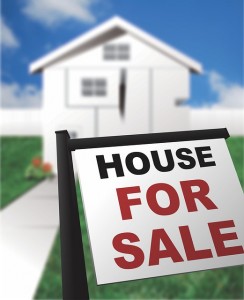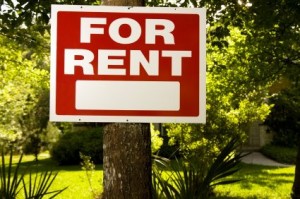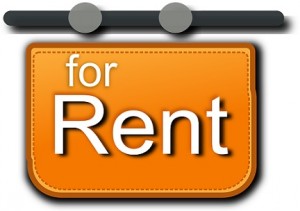 The answer to the question about whether any individual or family would be better off if they rent or buy a home can differ depending upon when the question is posed as well as the particulars of the available properties in either category. Even when the financial calculations make it clear that to buy a home in Highlands would result in significant savings, it’s possible that credit problems or simple cash inaccessibility render the choice moot—for the moment, anyway.
The answer to the question about whether any individual or family would be better off if they rent or buy a home can differ depending upon when the question is posed as well as the particulars of the available properties in either category. Even when the financial calculations make it clear that to buy a home in Highlands would result in significant savings, it’s possible that credit problems or simple cash inaccessibility render the choice moot—for the moment, anyway.
The reason a family budget is universally recognized as the single best way to get a handle on finances is because if you don’t know how much you’re spending in any given area, you won’t know when it needs to be curtailed. Given the size of monthly rent or mortgage outflows, it’s a pretty good idea for anyone with a long term outlook to know what the rent vs. buy a home tradeoffs are. The answer to that can be spectacular enough that a change in plan is called for.
For some time, one of the national real estate web sites—Trulia—has posted a calculator that yields an approximate answer to the rent or buy question. It is aimed at metro areas only, and concedes it’s at best an approximation, but when you enter “US Average” for the location, it comes up with a percentage difference. Right now, for the U.S. median home price of $180,800 and median rent price of $1,545, “buying a home” comes up as 44% cheaper than renting!
Now, there are a whole bunch of assumptions that should have us taking that answer with a shaker or two of salt. This assumes, for instance, that were you to buy a Highlands home with the national parameters you would be the happy beneficiary of “today’s mortgage rate,” which Trulia presents as 3.6%. Yes, this rate is actually being offered in some places to borrowers with spotless credentials, but counting on it would be iffy for most folks. Yet if you substitute 3.9%, buying a home is still 43% cheaper; a 4.2% loan makes the answer 41% cheaper.
Likewise, because the tax advantage gained when you buy a home is so stark, your income tax bracket can tip the buy vs. rent comparison greatly. If you move down from the assumption of a 25% tax rate (seems unlikely for the $180,000 median home buyer), even with a 15% tax rate, buying is 41% cheaper.
Sooooo, it looks like it’s always a very good idea to buy a house instead of renting it, right?
Wrong! The most important factor is the one that makes the most sense: “how long you intend to live there.” Its starting point assumption begins at 7 years. Move that down to 3 years and—all else being equal—the calculator comes up with buying being only 19% cheaper. Assume 2 years, and the buy vs. rent answer is that the costs are about the same. And at 1 year, renting is 37% cheaper than buying!
The precision of these percentages are unlikely to be spot-on for any given local individual or family, but the answers are probably useful anyway. It does indicate that for anyone planning on staying put locally for at least 3 or 4 years, taking a closer look at the rent a home/buy a home financial impacts will be worthwhile. I can help with current realistic Highlands specifics, so why not give me a call?


 For an increasing number of Highlands residents, what used to be a slam dunk assumption—that owning your home is preferable to opting for a Highlands rental home—is no longer so self-evident. The powerful reasons for owning are still there: ownership still means that you are building equity over time; it still means you are free from a landlord’s control; and it still means you have the psychological benefits of being the possessor of the place where you live, and the standing in the community that accrues to the permanence that implies.
For an increasing number of Highlands residents, what used to be a slam dunk assumption—that owning your home is preferable to opting for a Highlands rental home—is no longer so self-evident. The powerful reasons for owning are still there: ownership still means that you are building equity over time; it still means you are free from a landlord’s control; and it still means you have the psychological benefits of being the possessor of the place where you live, and the standing in the community that accrues to the permanence that implies. “WHY YOUR RENT CHECK JUST KEEPS GOING UP” was the headline in CNN Money’s real estate special report last month, which could have explained to Sapphire renters why it is that U.S. rents keep rising faster than home values. After all, that doesn’t seem to make sense!
“WHY YOUR RENT CHECK JUST KEEPS GOING UP” was the headline in CNN Money’s real estate special report last month, which could have explained to Sapphire renters why it is that U.S. rents keep rising faster than home values. After all, that doesn’t seem to make sense! When your primary residence is one of our Highlands rentals, from time to time you may find yourself pausing, pen hovering over checkbook, thinking, “What if this check were going to buy this place, instead…?”
When your primary residence is one of our Highlands rentals, from time to time you may find yourself pausing, pen hovering over checkbook, thinking, “What if this check were going to buy this place, instead…?”
